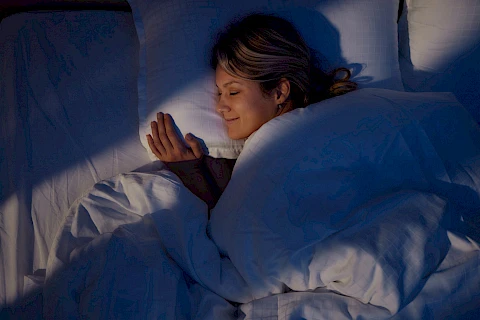
Caregiving is a demanding role that often involves juggling numerous tasks and responsibilities. This can make sleep sometimes feel like a luxury rather than a necessity. However, a lack of quality sleep can have negative effects on physical health and mental well-being. Ensuring a good night's sleep for caregivers isn't a luxury, it is an essential aspect of self-care.
The Importance of Sleep for Caregivers
Physically consistent, quality sleep is vital for maintaining energy levels, boosting the immune system, and promoting overall health. The restorative power of sleep also extends to mental well-being. It helps maintain mood stability and cognitive functions such as memory and alertness.
When sleep is compromised, the effects can be debilitating. Sleep deprivation can lead to decreased alertness, impaired decision-making, and increased vulnerability to stress. For caregivers, this lack of sleep could translate into potential safety issues for the individuals they are caring for and contribute to caregiver burnout.
Common Sleep Challenges Faced by Caregivers
As a caregiver, you may encounter specific challenges that can interfere with your sleep. The round-the-clock nature of caregiving duties often disrupts normal sleep patterns. Irregular schedules, overnight responsibilities, and the physical and emotional stress of caregiving can all contribute to sleep disturbances.
Practical Tips for Improving Sleep Quality
It is possible to improve your sleep quality, even with the pressures of caregiving. Here are some practical strategies you can incorporate into your daily routine.
Consistency
Strive to create a consistent sleep schedule. Establish regular sleep timings, even on weekends, to help regulate your body's internal clock and optimize your sleep quality. Stick to a bedtime routine that helps you wind down and signals to your body that it's time to sleep.
Self-Care
Though it may seem counterintuitive when you're responsible for someone else's well-being, taking care of yourself is an integral part of being an effective caregiver. Self-care activities like deep breathing, meditation, or a relaxing bath before bed can help you de-stress and promote better sleep.
Sleep Environment Improvements
Improving your sleep environment can also make a significant difference. A quiet, dark, and cool room with a comfortable bed and pillow can promote better sleep. Consider using earplugs or a white noise machine to block out disturbances, and invest in good quality bedding that enhances your comfort.
Professional Help
Don't hesitate to seek professional help if sleep problems persist. Sleep disturbances could be a symptom of an underlying health issue or sleep disorder. Healthcare professionals can provide the necessary treatment and offer advice tailored to your circumstances.
Senior Helpers Supports Seniors and Their Caregivers
Sleep is not a luxury for caregivers—it's a necessity. Adopting the strategies listed above can improve your sleep quality and enhance your caregiving ability. Remember, taking care of yourself is not a selfish act but a fundamental part of caring for others.
If you're a caregiver living in Indianapolis, Greenwood, Columbus, Martinsville, Franklin, or Marion County and need professional help in caring for your loved ones, don't hesitate to contact us at Senior Helpers Greenwood & South Indianapolis. We would love to discuss our in-home senior care services with you and support you during your caregiving journey!